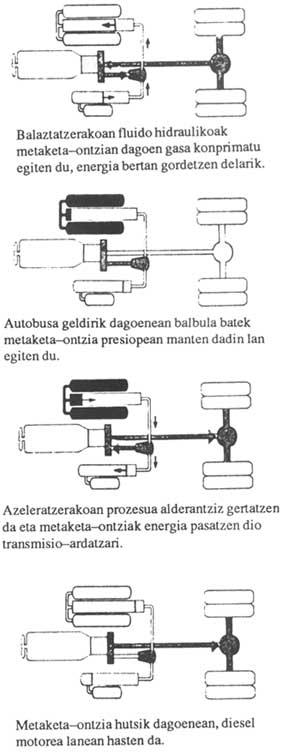Advancing energy
Scandinavian buses are about to test an energy saving system that is lost when braking. This energy will be used to restart the bus. The Volvo company is supplying 20 buses to the Cumulo train, which will be tested by public transport in several cities in Sweden.
The Volvo aerospace section has developed the Cumulo hydraulic transmission system for 10 years. When stopping, the system accumulates power from the drive shaft. When the bus restarts the system returns power to the transmission axis.
If the bus is full of passengers at a speed of 45 km/h and stops, the accumulated energy is enough for the bus to reach a speed of 35 km/h before resuming the diesel engine. The Cumulo system can be incorporated into any bus and considerably reduces fuel consumption and pollution.
When the bus runs at constant speed, Cumulo is disconnected, but when the driver touches the brake, an electronic control attaches it to the drive shaft. At that time a clutch attaches a large toothwheel to the drive shaft. This wheel drives a pump using another smaller gear wheel. The pump drives a hydraulic fluid from a vessel to an accumulation tank.
The accumulation tank contains a pressure gas. The hydraulic fluid drives a gas compressor piston. The gas reaches a pressure of 20-30 million pascals inside the accumulation tank.
When the driver affects the accelerator, the piston pushes the fluid back, affecting the teeth wheels and the drive shaft. Electronic control calms the clutch and starts working the diesel engine.
This transmission system operates as a hydraulic brake when the bus brakes downwards.
According to Volvo, fuel consumption can be reduced by 30%.






